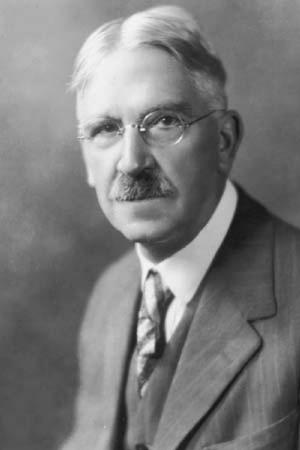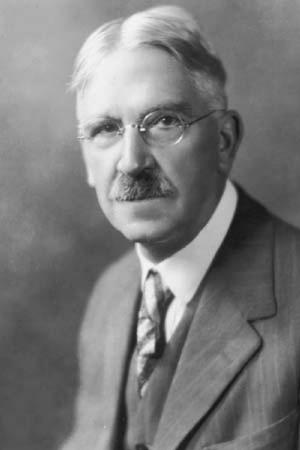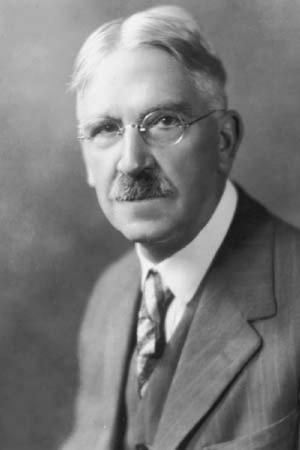| Author: | John Dewey | ISBN: | 1230001439366 |
| Publisher: | Timeless Books | Publication: | November 22, 2016 |
| Imprint: | Language: | English |
| Author: | John Dewey |
| ISBN: | 1230001439366 |
| Publisher: | Timeless Books |
| Publication: | November 22, 2016 |
| Imprint: | |
| Language: | English |
The book has an active table of contents for readers to easy access of each chapter.
John Dewey was one of the most influential American philosophers, psychologists, and educators whose ideas have impacted education and social reform around the world. He is one of the founders with the philosophy of pragmatism and of functional psychology. He is in the row with the greatest thinkers including Bertrand Russell, Ludwig Wittgenstein, Karl Popper, Charles Peirce, John Mill, and William James.
Dewey considered schools and civil society as the two fundamental elements that had to be constructively evolved by encouraging experimental intelligence and plurality. Dewey’s belief is that complete democracy is to be sustainable not just by giving and extending voting rights but also by ensuring that a fully formed public opinion is accomplished by communication among citizens, experts, and politicians with the full accountability and responsibility for the policies they adopt.
CHINA, JAPAN AND THE U. S. A. is the important book by John Dewey about China. From 1919 to 1921, Dewey gave nearly 200 lectures in China to Chinese audiences and he advocated that Americans supported China's transformation in education and social reforms, not revolution. Dewey also advocated "Mr. Democracy" and "Mr. Science" of representing modern values in China. Dewey's biggest impact on China was on the forces for progressive education in China including Hu Shi, Chiang Monlin, and Tao Xingzhi who had studied with him at Columbia School of Education. Hua Shi, Chiang Monlin, and Tao Xingzhi were the pioneers of laying out the foundation of modern educational systems in China.
John Dewey’s influence has been felt in nearly every field of the humanities, sciences, and American corporate culture such learning by doing. The reasoning by John Dewey still remains as relevant today as it was then. This book is one of the most important ones about the deepest thoughts of China, Science, and Democracy by John Dewey, one of the greatest thinkers of psychology, science, and logic on the planet.
The book has an active table of contents for readers to easy access of each chapter.
John Dewey was one of the most influential American philosophers, psychologists, and educators whose ideas have impacted education and social reform around the world. He is one of the founders with the philosophy of pragmatism and of functional psychology. He is in the row with the greatest thinkers including Bertrand Russell, Ludwig Wittgenstein, Karl Popper, Charles Peirce, John Mill, and William James.
Dewey considered schools and civil society as the two fundamental elements that had to be constructively evolved by encouraging experimental intelligence and plurality. Dewey’s belief is that complete democracy is to be sustainable not just by giving and extending voting rights but also by ensuring that a fully formed public opinion is accomplished by communication among citizens, experts, and politicians with the full accountability and responsibility for the policies they adopt.
CHINA, JAPAN AND THE U. S. A. is the important book by John Dewey about China. From 1919 to 1921, Dewey gave nearly 200 lectures in China to Chinese audiences and he advocated that Americans supported China's transformation in education and social reforms, not revolution. Dewey also advocated "Mr. Democracy" and "Mr. Science" of representing modern values in China. Dewey's biggest impact on China was on the forces for progressive education in China including Hu Shi, Chiang Monlin, and Tao Xingzhi who had studied with him at Columbia School of Education. Hua Shi, Chiang Monlin, and Tao Xingzhi were the pioneers of laying out the foundation of modern educational systems in China.
John Dewey’s influence has been felt in nearly every field of the humanities, sciences, and American corporate culture such learning by doing. The reasoning by John Dewey still remains as relevant today as it was then. This book is one of the most important ones about the deepest thoughts of China, Science, and Democracy by John Dewey, one of the greatest thinkers of psychology, science, and logic on the planet.















